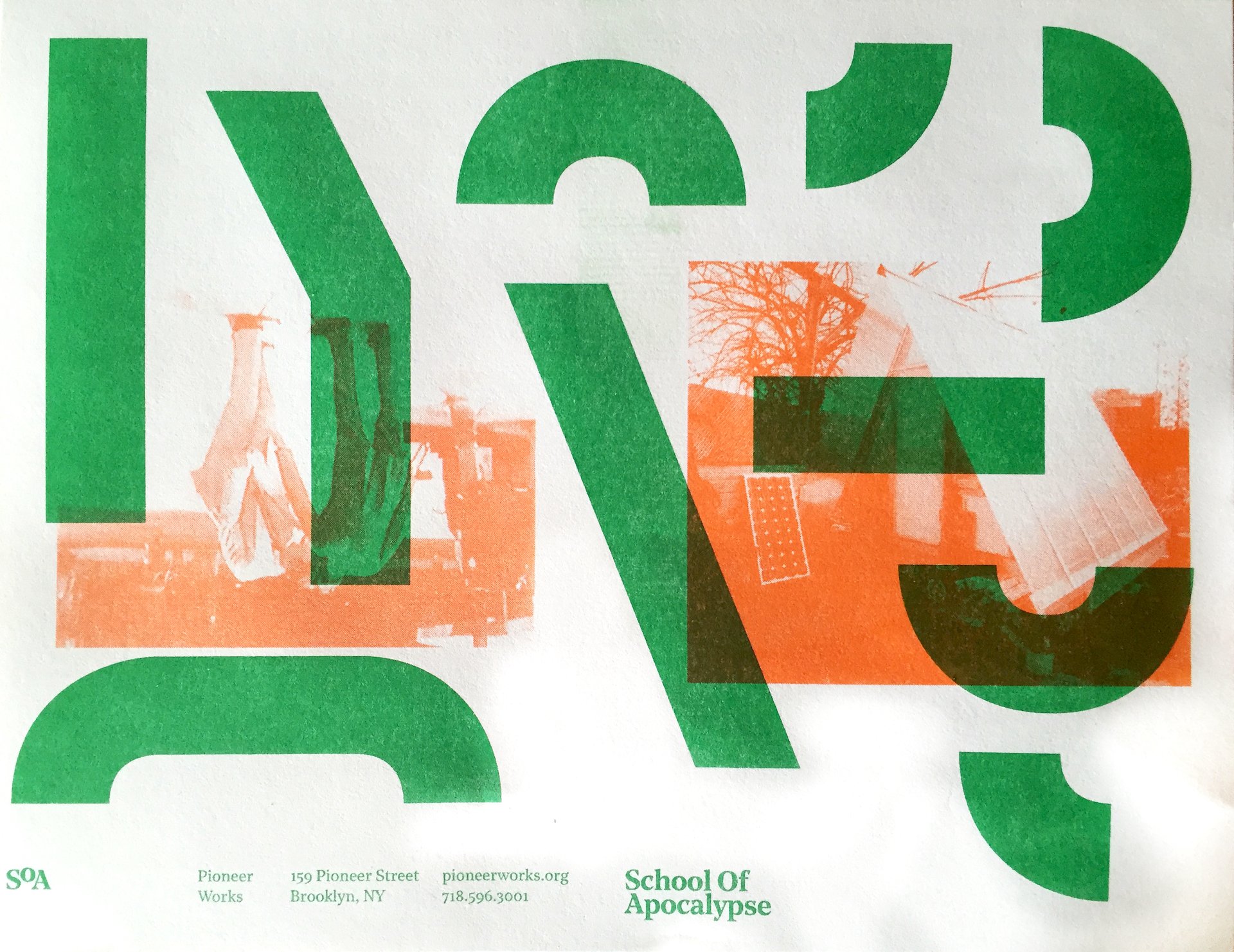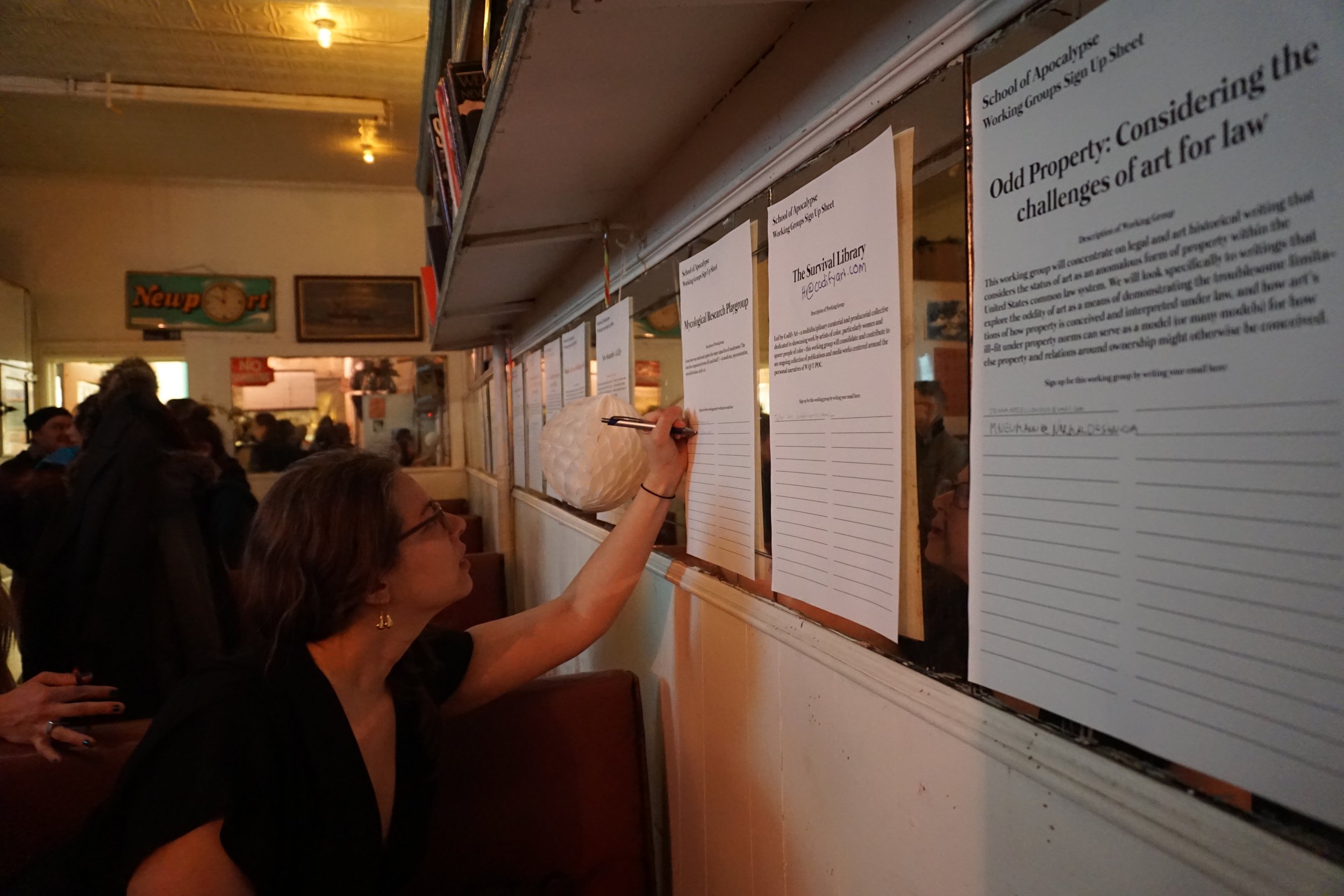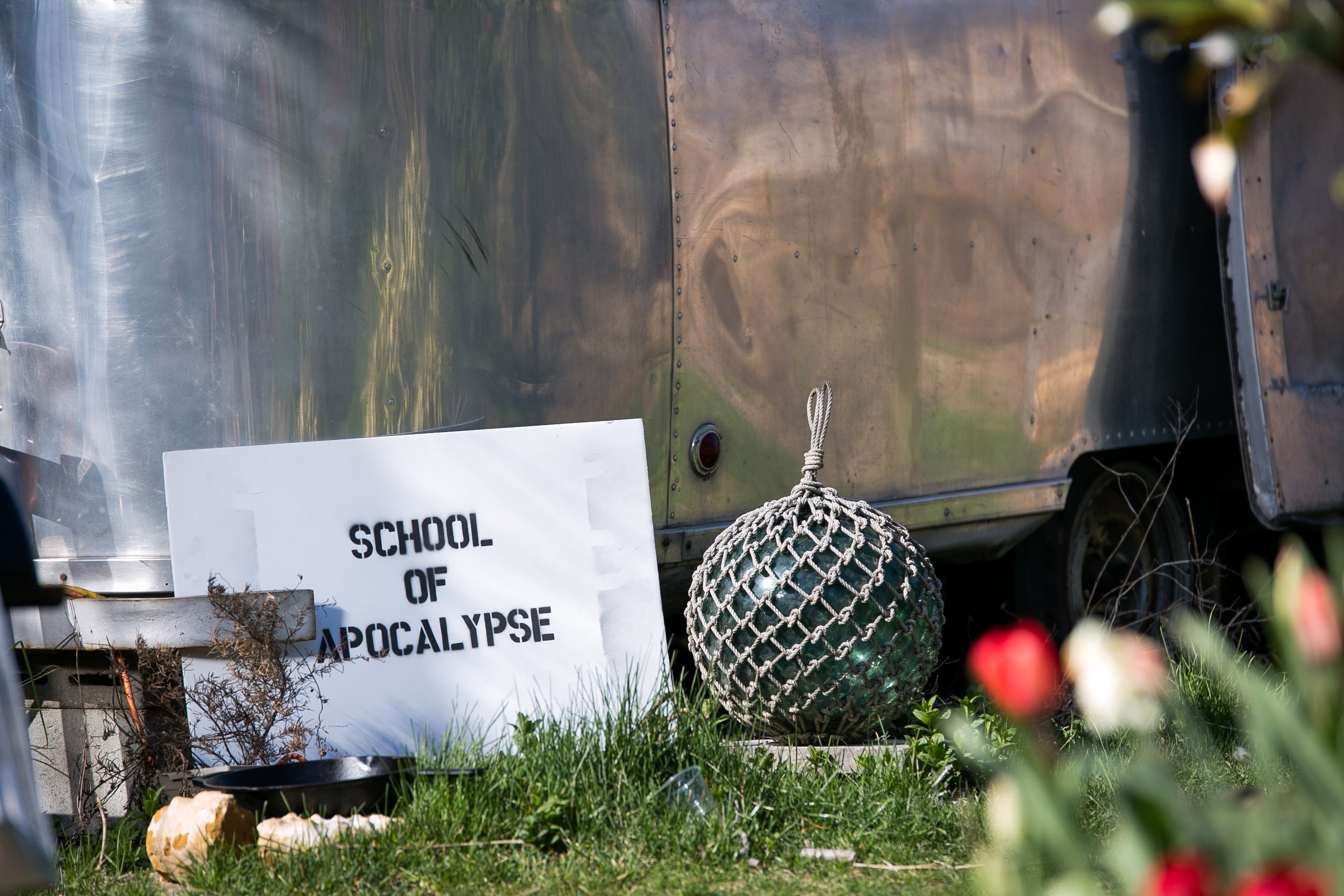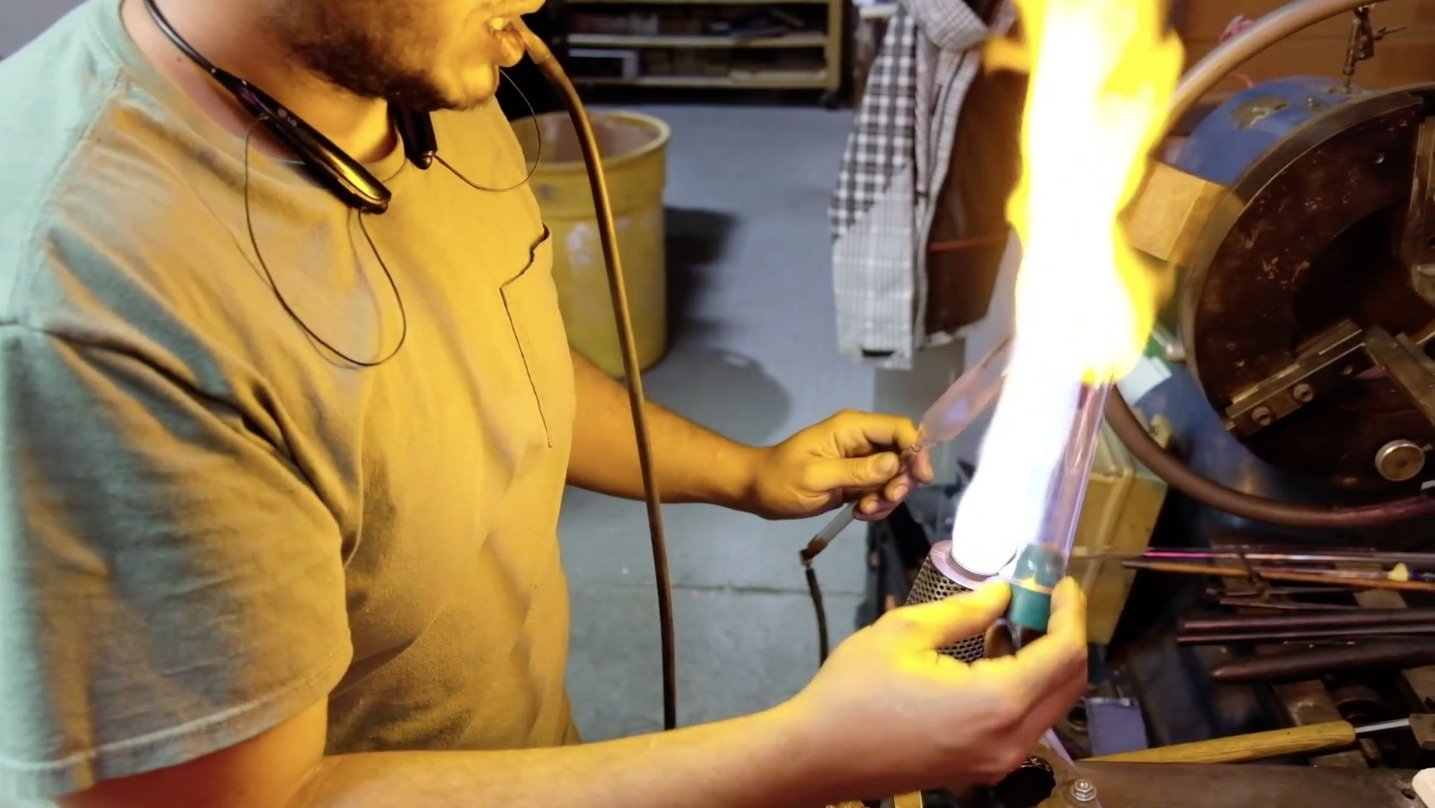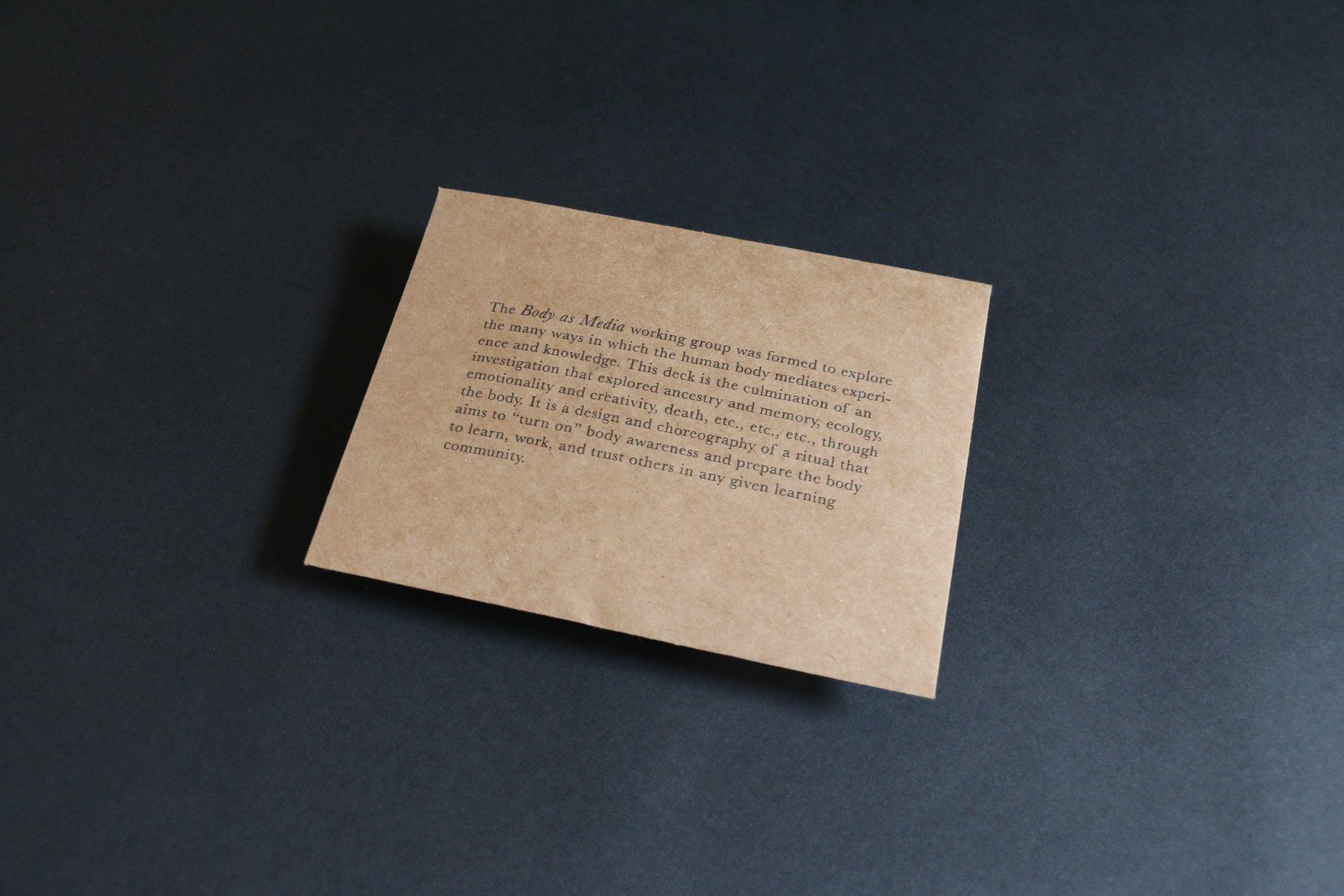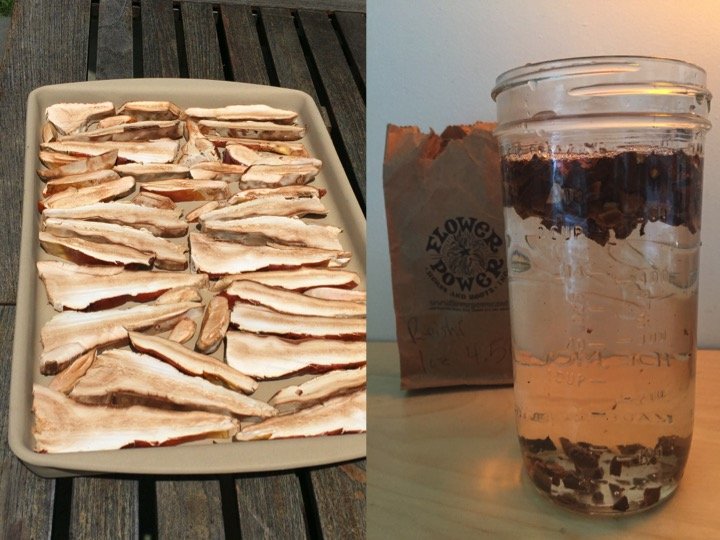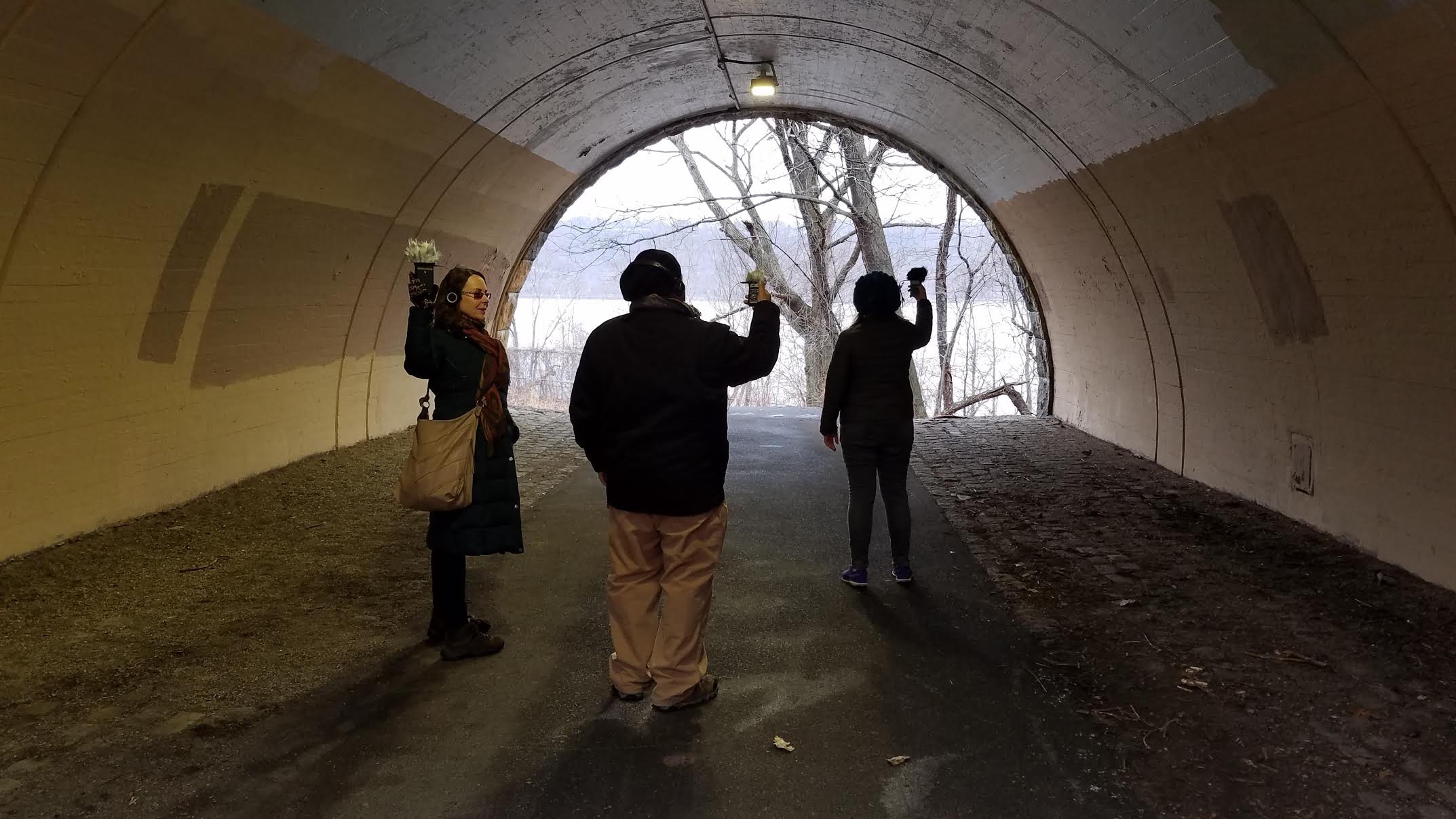School of Apocalypse
School of Apocalypse operated from 2016-2018 at Pioneer Works and Sunview Luncheonette.
School of Apocalypse examines the connections between creative practice and notions of survival. In light of growing cultural, ecological and technological phenomena that challenge basic assumptions about human existence, SoA offers courses and programming that seek to develop new modes of inquiry and apply broader levels of experience to intellectual investigation.
SoA has no fixed definition of survival, but engages with the fundamental questions that the themes provoke. We understand the creative potential of a school to be a space in which shared experience generates deeper insights and can lead to alternative cultural systems.
The school invites a range of thinkers, artists, and scientists to present programming on related themes. Subjects of study are theoretical as well as hands on, and emphasize the integration of observational and material practices found in mystical traditions, creative modalities and scientific field work.
School of Apocalypse emerged because so many of us today feel that we are heading toward a boundary or paradigm shift. We built a school to prefigure new approaches to learning and to contain multiple approaches to the same fundamental questions.
For us, apocalypse isn't quite a destination but a horizon, an idea that always exists somewhere in the near future, just ahead of us. As we look towards it, it reflects back our fears and desires. Thinking through apocalypse can therefore foreground creativity and survival, and strip away our pretensions to reveal truths about what is essential.
Guiding Principles
While school activities vary in length, format, subject matter, and methodology, the following goals and guiding principles apply to all SoA programming, with the aim that participants and faculty:
Define and redefine survival
Broaden perceptive capacities
Model alternative cultural systems
Connect theory and practice
How to Participate
Monthly Meeting
Anyone can participate in SoA programming at any time. The core platform for participation is the monthly meeting, which convenes the third Monday of every month. Each session centers around presentations and discussions led by invited speakers.
Quarterly Meeting
At the quarterly meetings, SoA opens itself to proposals from attendees who wish to bring projects for consideration to the larger group. People who present in the quarterly meeting should have participated in at least one of the monthly meetings. Based on a vote, select proposals are then invited to make expanded presentations at another session.
Working Group
The third level of participation is the working group. Working groups convene around specific projects or areas of research to produce documentation in the form of writing, exhibits, podcasts, performances, campaigns etc. Working groups are organized by SoA members and appear on the calendar, and can also form spontaneously among meeting attendees who wish to collaborate on shared interests.
Membership
Membership in SoA is not necessary to participate in any of the formats, but people who are interested in defining a closer commitment to its purpose and vision are welcome to write letters outlining their desire to schoolofapocalypse@gmail.com.
Governance
School of Apocalypse is governed by the Admin working group with input and guidance from the SoA community at large. Admin is a rotating group of SoA members who are interested in refining and experimenting with horizontal institutional governance models.
Pedagogy
School of Apocalypse is a radical learning community organized around a notion of school broadly defined as a framework and container for the emergence of shared knowledge. Knowledge in this case is also broadly defined, not only as particular bits and pieces of information, but as experiences that can offer new paradigms or ways of seeing; experiences that can change the way experiences are experienced. In that way, SoA as a framework ideally works the way knowledge itself works. SoA is a learning community both in the sense that it is a community wherein participants are expected to learn together, but also in the sense that as a community it itself learns. In that way, the structures underlying SoA should be expected to be dynamic and to change as the community learns. But SoA is a learning community in a third sense, too, as a group that is learning community, learning what it takes or means to be in/of/for community.
SoA participants are fully engaged in the space of learning and are active agents in creating and recreating the place in which the learning occurs. The school thrives by creating opportunities for participants to influence the content or structure of the program. We seek new ways of knowing and unknowing, such that multiple modes of learning are engaged simultaneously. Finally, we are deeply committed to seeing our "product" as a community of shared values that foregrounds the interconnections between self and other. Our pedagogy is therefore:
Place-Based
Participatory
Experiential
Collaborative
History
School of Apocalypse was founded by Tal Beery, Catherine Despont, Eugenia Manwelyan, and Adam Stennett in 2015. The four founding faculty kicked off the school with a series of events and courses that addressed apocalypse, survival, and the cultural role of creative practice through writing, movement, ethics, and hands-on skills. It was incubated at Pioneer Works in Red Hook, Brooklyn, where the first series of courses, monthly meetings, and working groups were held. After 18 months, SoA left Pioneer Works to experiment with a nomadic structure. In 2016 the Admin working group took over governance of SoA. Admin working group members have included Tal Beery, Catherine Despont, Eugenia Manwelyan, Nelesi Rodriguez, and Danica Selem.
Faculty
Catherine Despont is a writer/artist, editor and educator. She has an MFA in Fiction from Columbia University, and her writing and teaching focus on the role of observation in the way we teach, learn and create. As Director of Education at Pioneer Works she organized the annual Summit on Pedagogy, and the Alternative Art School Fair. She also oversaw PW’s publishing projects including the bookstore, Pioneer Books, and the Groundworks book series. She is a founding faculty member of the School of Apocalypse. >>catherinedespont.com
Tal Beery is an artist and educator. Beery is co-founder of Arts and Ecology, a multidisciplinary institute committed to research, art, and education on radical environmental themes. He is founding faculty at School of Apocalypse, examining the connections between creative practice and notions of survival. Beery is an activist with Occupy Museums, opposing the economic and social injustices propagated by institutions of art and culture. His written work and interviews have appeared in numerous publications and his personal and collaborative works have been exhibited in museums and galleries in the US and Europe. >>talbeery.com
Eugenia Manwelyan is a New York based choreographer, educator, and ecologist. She is the co-founder of Arts and Ecology, Director of Eco Practicum, member of Best Praxis art collective, and a founding faculty of School of Apocalypse. Her work is rooted in pedagogies of power, social choreography, and the connections between creative practice and survival. As a visiting faculty at Columbia University, Eugenia has worked on environmental planning and arts projects in the New York bioregion as well as India, Vietnam, and Jordan. Eugenia spearheaded a youth theater and peace-building project in Israel and Palestine that is now in its tenth year. She holds a BA in International Development from McGill University and her MS in Urban Planning from Columbia University. Eugenia engages in ongoing investigations into the powers of indigeneity to reorient civilization toward a new paradigm for survival. >>emanwelyan.com
Adam Stennett was born in Kotzebue, Alaska in 1972, grew up in Oregon and lives in Brooklyn. Stennett explores the human condition, notions of survival and utopia/dystopia through painting, video and multimedia works including a recent endurance performance at Pioneer Works called the Arctic Artist Survival Shack. His work is included in numerous public and private collections and has been widely exhibited in both, national and international exhibitions at venues including Centro de la Imagen in Mexico City, the Portland Art Museum, the Chelsea Art Museum, the Hudson Valley Center for Contemporary Art and The National Arts Club as well as at a variety of established galleries. Stennett's work has been reviewed and featured in publications such as The New York Times, The Los Angeles Times, The New York Sun, Frieze, Art In America, Bomb Magazine, Contemporary Magazine, Whitehot Magazine, BlackBook, New York Magazine, The New Yorker, Harper's Magazine, and Esquire among others. Stennett has lectured and participated on panels as an artist at Georgetown University, School of Visual Arts, NYU Tisch School of the Arts, New York Film Academy, and Willamette University. Stennett is a founding faculty member of School of Apocalypse.>>adamstennett.com
